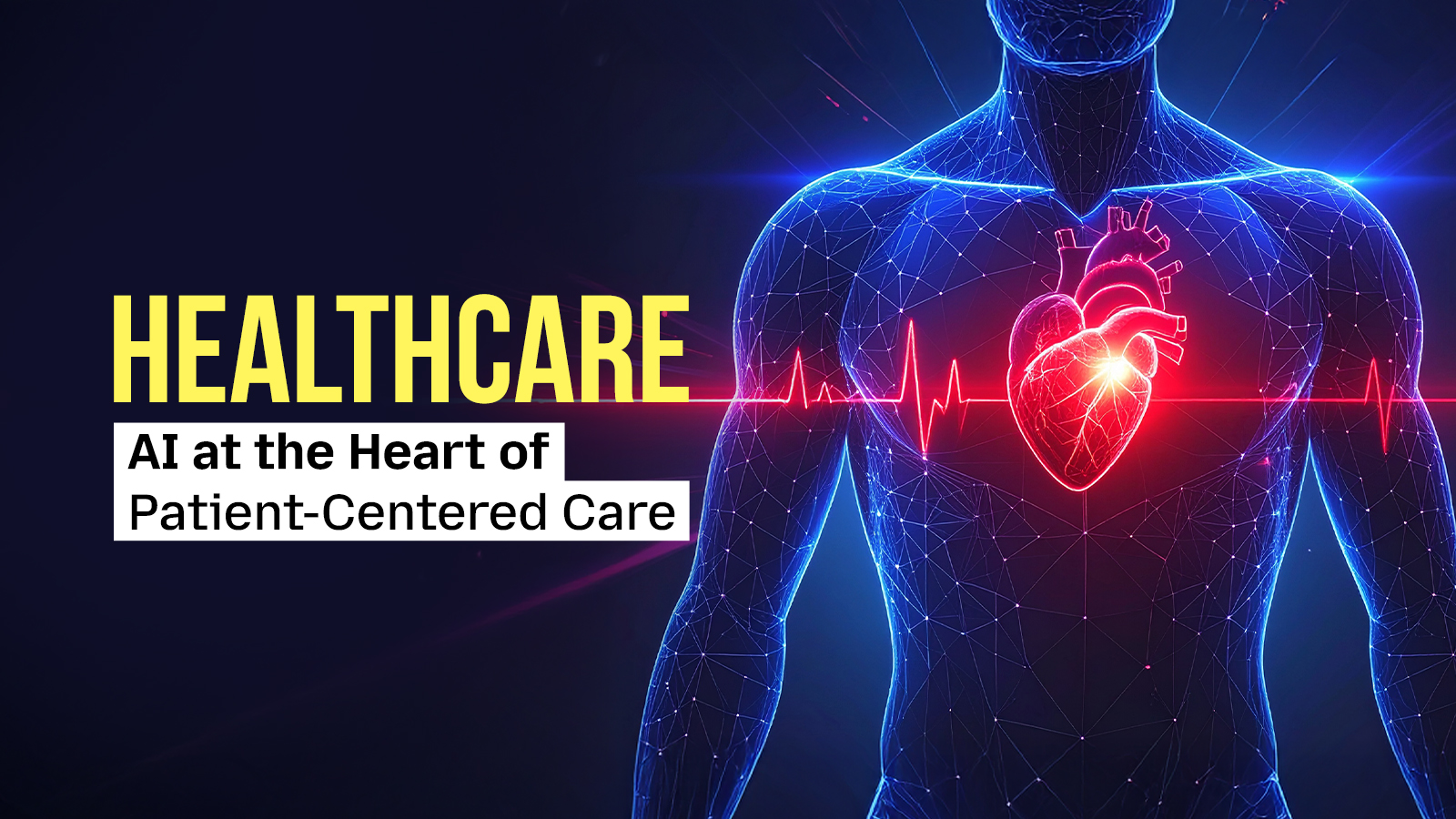The world of healthcare is undergoing a digital revolution, and at the heart of this transformation lies Artificial Intelligence (AI). From diagnosis and treatment to patient monitoring and administrative efficiency, AI is redefining how care is delivered and experienced. As technology evolves, healthcare providers are turning to intelligent systems to enhance accuracy, speed, and patient outcomes.
In 2025, the integration of AI in modern healthcare is not just an innovation—it’s a necessity. Let’s explore how AI is transforming patient care and revolutionizing the medical landscape.
AI: The New Frontier in Healthcare Innovation
Artificial Intelligence is no longer a futuristic concept—it’s a reality that’s changing medicine today. AI systems can analyze massive volumes of data faster than any human, identify hidden patterns, and provide real-time insights that assist medical professionals in making better decisions.
Whether it’s detecting diseases earlier, predicting patient outcomes, or personalizing treatment plans, AI’s potential in healthcare is limitless. It empowers doctors, enhances patient engagement, and paves the way for a more efficient and effective medical ecosystem.
Early Diagnosis Through Predictive Analytics
One of the most profound impacts of AI in healthcare lies in early disease detection. Predictive analytics powered by AI can analyze patient data, genetic information, and lifestyle factors to identify risks long before symptoms appear.
For example, AI models can detect the early signs of cancer, diabetes, and cardiovascular diseases using imaging scans or lab results. Tools like Google’s DeepMind and IBM Watson Health have already demonstrated the ability to identify medical conditions with astonishing accuracy.
This proactive approach not only saves lives but also reduces treatment costs by preventing disease progression. Early diagnosis means earlier intervention—and that’s where AI shines brightest.
Enhancing Precision Medicine
AI is the driving force behind precision medicine, where treatments are tailored to individual patients rather than applying a one-size-fits-all approach. Machine learning algorithms analyze genetic data, medical histories, and environmental factors to recommend personalized therapies.
For example, AI can determine the most effective cancer treatment for a patient based on their genetic makeup and tumor characteristics. It also helps predict how patients will respond to certain medications, minimizing adverse reactions and improving treatment outcomes.
In 2025, precision medicine supported by AI is helping doctors make decisions with unprecedented accuracy, turning personalized care into a global standard.
AI-Powered Medical Imaging and Diagnostics
Medical imaging is one of the fields most transformed by AI. Advanced algorithms can analyze X-rays, MRIs, and CT scans faster and with greater precision than human specialists. These systems assist radiologists by detecting abnormalities that may go unnoticed during manual reviews.
AI tools such as Aidoc, Zebra Medical Vision, and PathAI are revolutionizing diagnostics by reducing errors and improving detection rates for diseases like lung cancer, brain tumors, and heart conditions.
By enhancing diagnostic speed and accuracy, AI not only supports physicians but also reduces patient anxiety and enables quicker treatment decisions.
Virtual Health Assistants and Chatbots
AI-driven virtual assistants are playing a critical role in improving patient engagement and accessibility. These intelligent chatbots and voice assistants provide 24/7 support, answering health-related questions, scheduling appointments, and even offering medication reminders.
Virtual health assistants like Ada Health and Buoy Health empower patients to manage their health proactively. They collect information about symptoms and provide recommendations for next steps—often guiding patients to appropriate medical care.
This accessibility helps reduce hospital visits for minor issues while ensuring that serious concerns receive immediate attention. In essence, AI-powered assistants are becoming the first line of patient support.
Remote Monitoring and Smart Wearables
AI is also revolutionizing remote patient monitoring, particularly for chronic diseases. Wearable devices equipped with AI sensors continuously track vital signs such as heart rate, oxygen levels, and blood pressure.
Data from devices like Fitbit, Apple Watch, and Garmin is analyzed by AI systems to detect anomalies in real time. This enables healthcare providers to intervene before a health issue escalates, improving outcomes and preventing emergencies.
For elderly and at-risk patients, AI-driven monitoring offers peace of mind, allowing them to live independently while staying connected to their caregivers.
Streamlining Hospital Operations
Beyond clinical care, AI is optimizing hospital administration and operations. From scheduling and billing to managing electronic health records (EHRs), AI streamlines time-consuming tasks, freeing healthcare professionals to focus on patients.
Automation tools help hospitals predict patient admission rates, optimize staffing, and reduce waiting times. AI also assists in supply chain management, ensuring essential medical supplies are always available when needed.
These operational efficiencies translate into better patient experiences, reduced costs, and more sustainable healthcare systems.
Drug Discovery and Development
AI is dramatically accelerating the process of drug discovery and development, which traditionally takes years and billions of dollars. By analyzing chemical structures, biological data, and previous trial results, AI can identify potential drug candidates much faster.
Companies like DeepMind and Insilico Medicine are using AI to predict molecular behavior and design new compounds for testing. This technology is shortening development cycles and reducing costs, bringing life-saving medications to patients sooner.
AI’s role in drug research is not only about speed but also accuracy—it helps scientists discover treatments that might otherwise remain hidden in complex datasets.
Enhancing Patient Experience and Engagement
AI improves patient experience by offering personalized and convenient healthcare solutions. Chatbots, predictive care platforms, and remote monitoring tools make patients feel more connected and informed.
AI also enables hospitals to tailor services based on patient feedback and behavior. Predictive models can forecast patient needs, allowing institutions to offer proactive support.
This human-centered approach, powered by AI, builds stronger patient-doctor relationships and fosters trust in digital healthcare solutions.
Ethical AI and Data Security
While AI brings incredible benefits, it also raises concerns about privacy, ethics, and data protection. Healthcare providers must ensure that patient data is secure, transparent, and used responsibly.
Regulations like GDPR and HIPAA set strict standards for data handling. Ethical AI development ensures that algorithms remain unbiased and that decisions prioritize patient welfare.
As AI continues to evolve, maintaining a balance between innovation and integrity will be key to sustainable progress in healthcare.
Conclusion: AI Is the Future of Patient-Centered Care
The impact of Artificial Intelligence on healthcare is nothing short of revolutionary. From early diagnosis to remote monitoring, AI is reshaping how doctors and patients interact, improving accuracy, efficiency, and overall care quality.
In 2025 and beyond, AI is not replacing human expertise—it’s enhancing it. The combination of human compassion and machine intelligence is creating a new standard in patient care—one that is faster, smarter, and more accessible to all.
The future of healthcare is already here, and it’s powered by AI.


